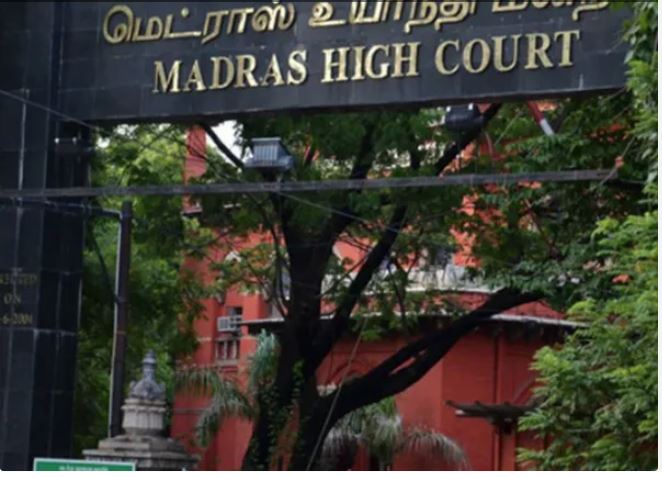The Madras High Court recently ruled that there was no scope for reservation, either vertical or horizontal, in the appointment of Law Officers to the High Court and its Madurai Bench.
Dismissing a batch of petitions seeking reservation in the appointment of law officers, the Bench of Chief Justice SV Gangapurwala and Justice Bharatha Chakravarthy observed that the appointment of Law Officers by the government was not a civil post and the officers were not employees of the Government.
It said the procedure laid down for the purpose did not suffer from the vice of arbitrariness, nor it can be said that the procedure was not transparent.
While selecting law officers, the Government had to select the most competent, capable and meritorious lawyers to represent them as Law Officers, said the Bench, adding that merit was the sole consideration for the post.
The methodology adopted for the process naturally has to be transparent and the invitation of applications should be broad-based as the law officers would eventually be safeguarding the public interest.
The Apex Court passed the orders on a petition filed by Thol Thirumaavalavan, President of Viduthalai Chiruthagal Katchi (VCK), seeking to quash the Government Order on rules related to the appointment of Law Officers to the High Court of Madras and its bench in Madurai.
The petitioner further sought directions for framing of new rules to ensure transparency, adequate representation to women, the Scheduled Caste, the Scheduled Tribe and minorities.
Thirumaavalavan submitted that even assuming that appointments to the post of Law Officers were temporary, as per an Office Memorandum issued in 1968, reservation for scheduled caste, and scheduled tribe was to be provided in all temporary appointments except the appointments which lasted less than 45 days. Thus, it was submitted that the Appointment of Law Officers of High Court of Madras and its Bench at Madurai (Appointment) Rules, 2017 was arbitrary, unjust, and liable to be quashed.
He further challenged the appointment process and submitted that there was no transparency as the basis of selection was not revealed by the government. Thus, it was contended that to uphold the already downtrodden, vulnerable, and oppressed groups of society, a fair and transparent procedure was to be adopted.
The Advocate General contended that Law Officers were not employees of the State, but professional practitioners engaged to do specific work by using their expertise.
The State relied on the judgment of the Apex Court in Indra Sawney v Union of India, wherein it was held that in certain services and positions, it was not advisable to provide for reservation. Concerning the rules, the State informed the court that the appointments were made by following the 2017 Rules.
The court noted that the government, being the custodian of public interest was obligated to protect the public interest to the optimum extent and in the best possible manner. To fulfill this duty, the Government was mandated to engage the best officers based on ‘merit.’
It further noted that the relationship between the government and the Law Officer was a purely professional one and not that of a master and servant. The court emphasized that the Law Officers were not government servants, not employees.
Since the appointment of the Law Officer was at the pleasure of the government, the court observed that the appointment was not a tenure appointment. Thus, the court observed that Article 16(4) of the Constitution and the reservation policy were not attracted in the present appointments.
Accordingly, the court noted that the procedures already existing were not arbitrary and dismissed the pleas.
Advocate M.Palanimuthu appeared for the petitioner. The respondent was represented by Advocate General R Shunmugasundaram, assisted by State Government Pleader P Muthukumar and Advocate A.G.Shakeena.
The Intervenors were represented by Kaviyanathan for M/s Nathan and Associates
(Case title: Thol Thirumaavalan vs The Principal Secretary)


